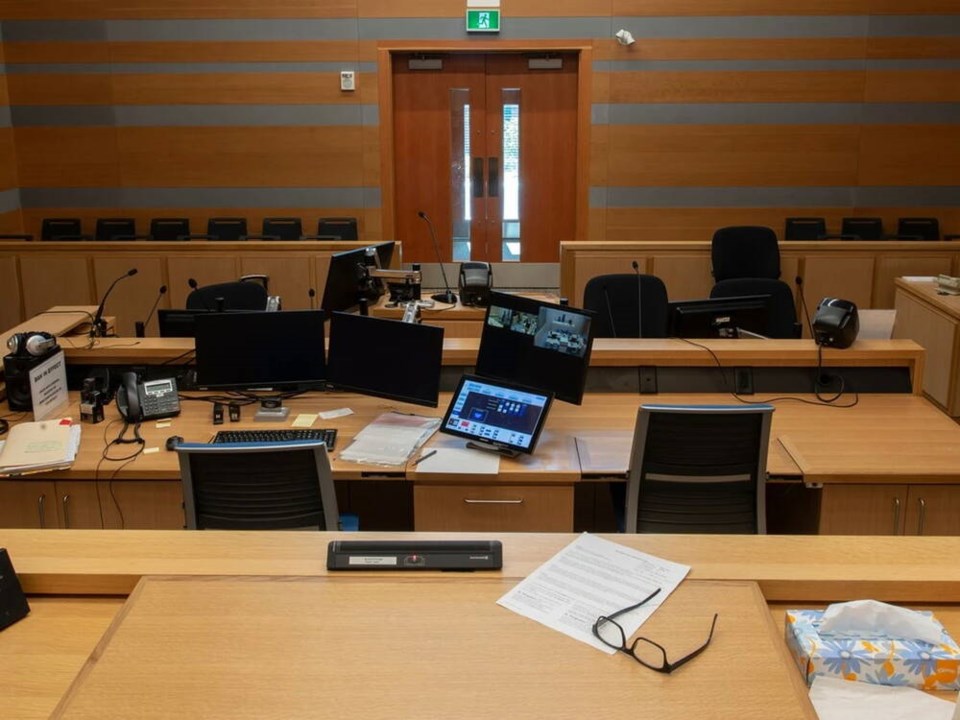B.C.’s Judicial Compensation Commission has bullied the attorney general into approving a huge wage increase for judges.
Retroactive to April 1, 2023, the province’s 131 full-time provincial court judges are to receive a four-year, 28.4-per-cent increase in their already hefty salaries.
That lifts their annual compensation from $288,500 to $343,000. There are also provisions for interest on the first year’s hike, pension improvements, and various other trinkets that have no possible justification.
We call this “bullying,” because that’s what it has become.
The commission comprises five members, three of whom are lawyers (all of them KCs), and one of whom is a retired judge who acts as chair (the legislation prohibits judges from serving).
By law, the commission is charged with recommending compensation levels for provincial judges. And by law, the legislature has the option of accepting this advice, or altering it where necessary.
However, that is not what happened here. The legislature was never given a chance to vote on this self-evident piece of back-scratching.
The attorney general merely “tabled” the commission’s recommendations, and the cabinet then approved them. There was no discussion, no debate, and no room for revisions.
Why so? Because as Attorney General Niki Sharma, who wanted a 16-per-cent hike, explained, the province is still in court after rejecting the commission’s last “recommendation” in 2019. That led to an immediate legal challenge by judges, which is still ongoing.
There is history here, and it is not for the faint-hearted. In 1997, the Supreme Court of Canada heard protests by judges at efforts by the Prince Edward Island government to limit judicial wage increases, consistent with restrictions placed on all public sector employees.
Although both the federal attorney general and nearly every provincial attorney general intervened to support P.E.I., the court found that limits on judicial salary increases breached judicial independence.
P.E.I.’s effort to manage the fiscal crisis then confronting every province was struck down.
This declaration by Canada’s top court, that setting limits on judicial salaries infringed judicial “independence,” finds no support in the Constitution Act, the Charter, or any federal or provincial law
Indeed, it is controverted by every piece of legislation we have.
It’s worth considering what is going on here. Our courts apparently believe the country’s governing structure resembles a pyramid, with the judiciary at the top.
But that’s not how democracies are meant to function. For every privilege granted, there is supposed to be a restraining authority to check or balance it.
Here we have none.
When the government of B.C. must go before a judge to beg for a limit on judicial wage hikes, the absurdity speaks for itself. Our courts have placed their compensation beyond the reach of Parliament itself.
That may be why, in part, British Columbians hold our courts in such low regard. In a recent opinion poll, only 24 per cent of respondents said they had confidence in the province’s courts.
We might also wonder what our judges have done to merit such a huge wage increase. Trial delay is endemic in Canada, as courts across the country display an inability to manage.
Multi-year trials are now commonplace, with the result that lesser charges are often simply dropped. That might explain how an Abbotsford man ran up 21 impaired driving convictions before being taken off the road.
Government or private sector managers who displayed this degree of incompetence would have their wings clipped.
To state what should be obvious, our courts are not above the law. It is up to the country’s attorneys general to insist that in matters which entail their self-interest, judges are not the ultimate authority.
>>> To comment on this article, write a letter to the editor: [email protected]



